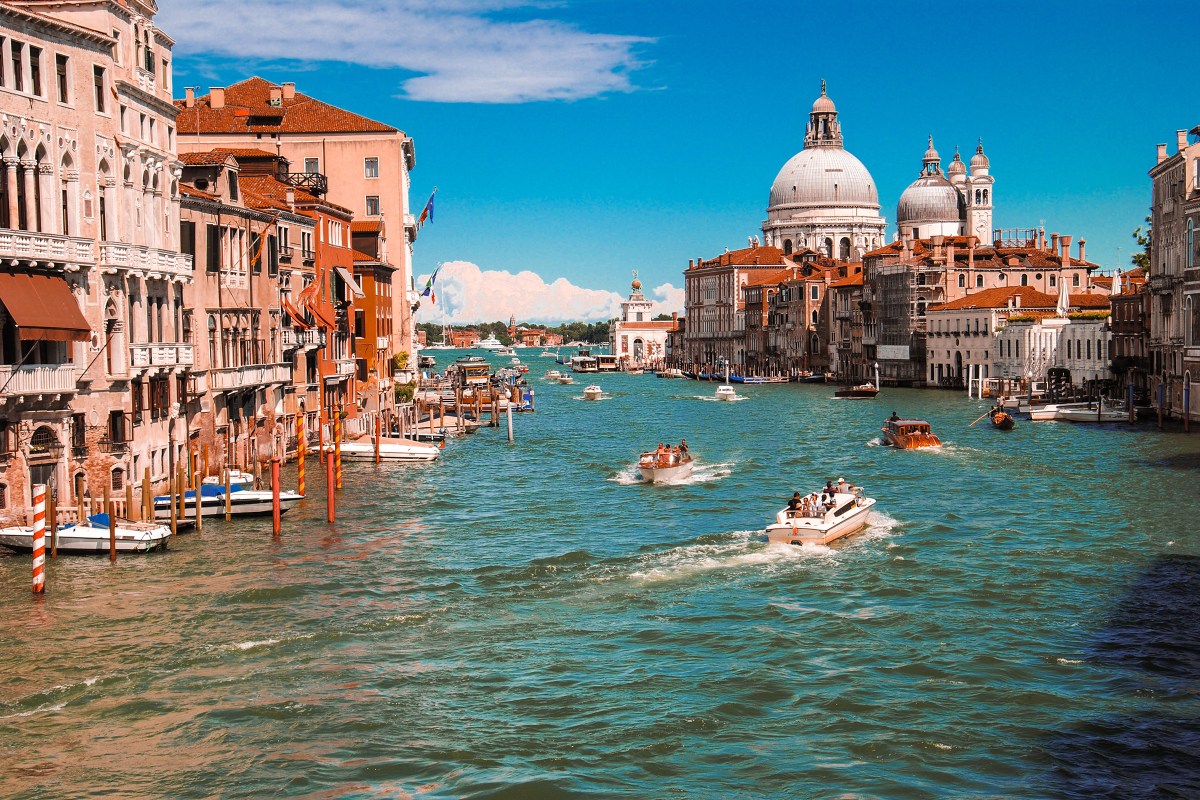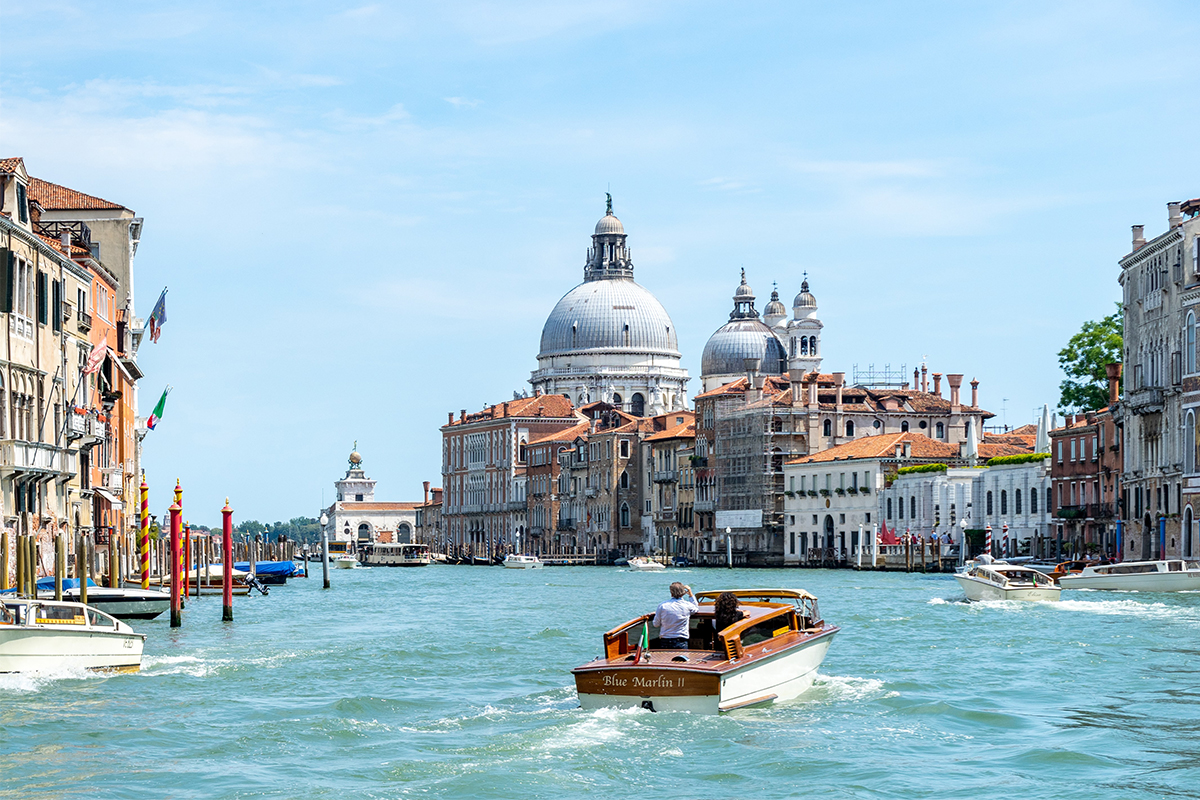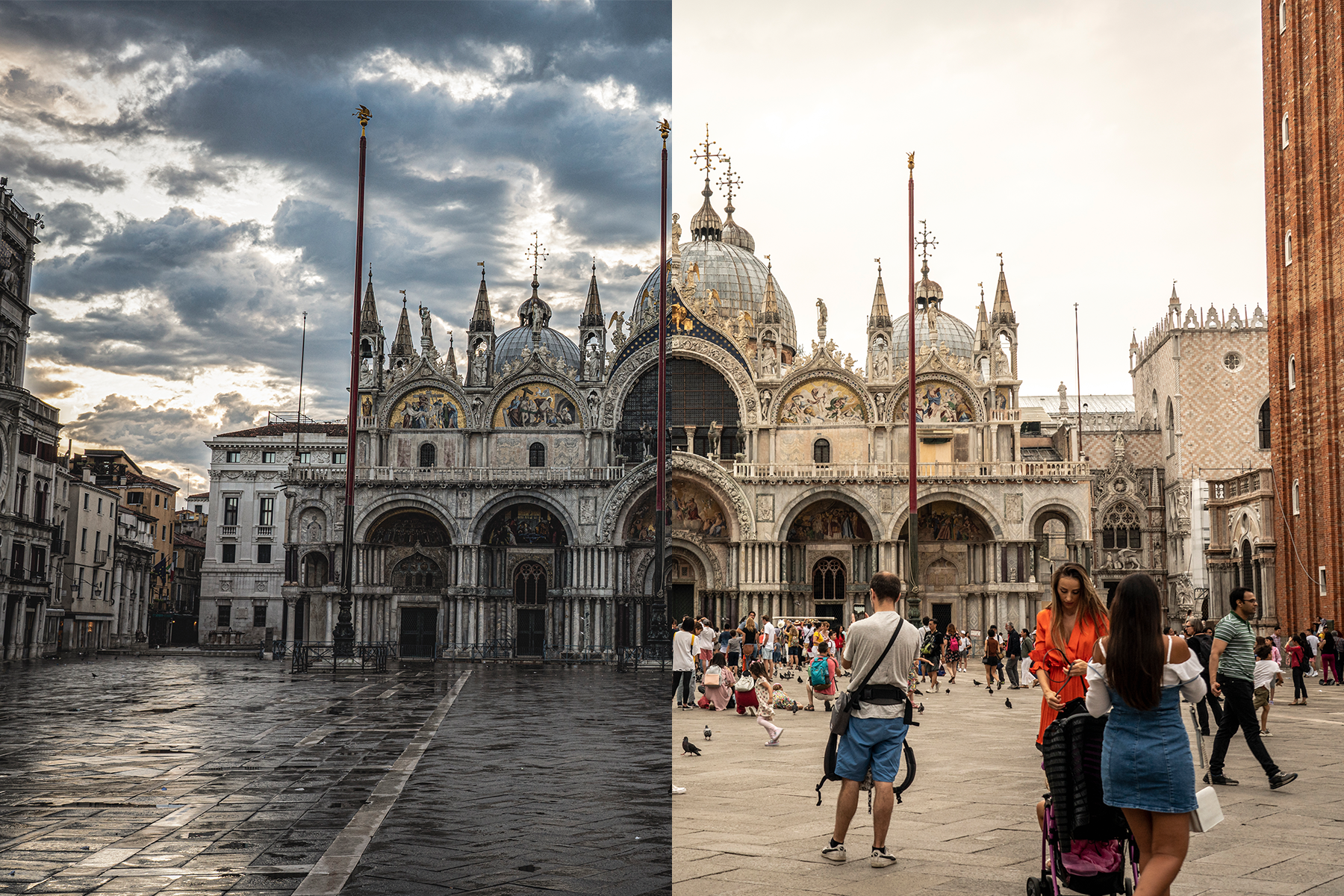Is Venice dying? A quick Google search yields a mixed bag of results. Bloomberg proclaims that “Venice is Dying a Long, Slow Death.” A handful of other publications concur. Startling images of acqua alta and floods of the touristic variety lend themselves nicely to the theory. But the question of whether Venice is dying, at least in the literal sense, is not really the most pressing one.
Neal Robbins’s Venice, an Odyssey: Hope, Anger and the Future of Cities is a present-day successor to Jan Morris’s 1960s bestseller Venice. It examines the city through several lenses: the role it’s played in modern art, film and literature; its history; the precariousness of its setting; its reliance on water; the historical influence of women; the trades — like boatmaking — that call it home; the significance of its many islands; the wildlife; the hospitality sector; etc. It’s also a collection of stories from more than 150 Venetians who Robbins interviewed in his research. But beyond that, it’s also a roadmap that holds a great many clues as to what the future of some of the most famous cities on earth might look like.
“Venice is more delicate than other cities, so, like the caged canary in the mine, whose sensitivity warns miners of poison gas, its fate may be a warning for us all,” Robbins writes.
Robbins experienced Venice for the first time as a 17-year old in 1971. He recalls his time spent living with a Venetian family clearly and fondly. That — in addition to a series of lingering questions — is what brought the career journalist back to Venice some 50 years later. Venice, an Odyssey is not only Robbins’s exploration of the historic city he fell in love with as a high school student, but also of Venice as the world writ small.
It’s no secret that Venice has long been suffering a drastic decline in population. Since 1950, residency has decreased by nearly 70 percent, from 174,000 people to just 52,000, and overtourism has played a large role in that. But it also has a lot to do with a loss of identity. Younger Venetians don’t identify with the culture. They’re marrying less frequently, pursuing jobs outside of the city (as local jobs are scarce, and non-tourism jobs, even more so), and putting down roots elsewhere. Traditions are dying with no one to uphold them and, with them, the Venetian way of life.
All of this to say: the threat of a cultural death is perhaps more imminent than any notion of an ecological one. It’s a sentiment that rings true in other major cities, too. According to a pre-pandemic report from USA Today, St. Louis, Detroit, Cleveland, Buffalo and Pittsburgh have all lost half or more of their populations since 1950.
Of course, due to climate change, rising sea levels and the erosion of the lagoon, there are certainly concerns over Venice’s natural future as well (though, by those standards, New York City is also dying). But for Robbins and natives of the city, that story is secondary to the death that is already at hand.
“For people who live in Venice, its death is a real concern. Some regard it as a forgone, but deeply regretted conclusion. Others fear it may be too late for Venice, but they cling to hopes for change that will salvage the future,” Robbins writes. “For yet others, the present represents a sort of challenging transition, and the talk of death is just a marketing ploy to exploit its future ‘demise’ for profit as Venice is increasingly turned into Disneyland.’”
The Disneyland trope is one that Venice has been combating since, according to Robbins, the early 90s. In 2013, there was even a plan for a project dubbed “Veniceland,” which — had it been successful — would have seen the island of Sacca San Biagio turned into an amusement park, complete with a 55-meter Ferris wheel and a rollercoaster. Despite the promise of 500 new jobs and the cleanup of what had become a toxic dumping ground, Venetians balked at the idea. Still, in 2017, The New York Times wrote that Venice was at risk of becoming “Disneyland on the sea.” Even now, it’s a source of contention among residents.
“Today no one cares. Whoever is able to, deals drugs,” Venetian priest Don Fausto Bonini told Robbins. “Venice is at a historical turning point. An existential turning point, because we are moving towards putting value only on money instead of ideals, and letting money take charge.”
Through his conversations with locals and by his own account, Robbins paints a different picture of Venice. He presents a city that is slow but purposeful, progressive and vibrant, and very much worth saving. “Saving Venice is as much about saving the community of Venetians as it is about saving the stones, the bricks and the art,” Robbins says.
Before ever visiting Venice, and even for a time after, I considered it a sort of modern-day Atlantis, an ephemera, its existence above water merely temporary. While naive, it’s certainly the picture that’s been painted by most corners of the media in recent years. I assumed I’d have the opportunity to visit just once, if for no other reason than I have no wish to further contribute to its demise. ButVenice, an Odyssey suggests that perhaps all great cities are destined to “die,” insofar as death — in a civic sense — signifies the end of one era, and the beginning of another.
When I asked Neal Robbins if he thinks Venice is dying, he offered me this in return: “As the historian Mario Isnenghi has said to me, to say Venice is dying is to believe in the end of history. History does not end. Venice changes, it does not die. It may change in ways that we dislike, but until it actually sinks beneath the waves, Venice lives.”
This article was featured in the InsideHook newsletter. Sign up now.























